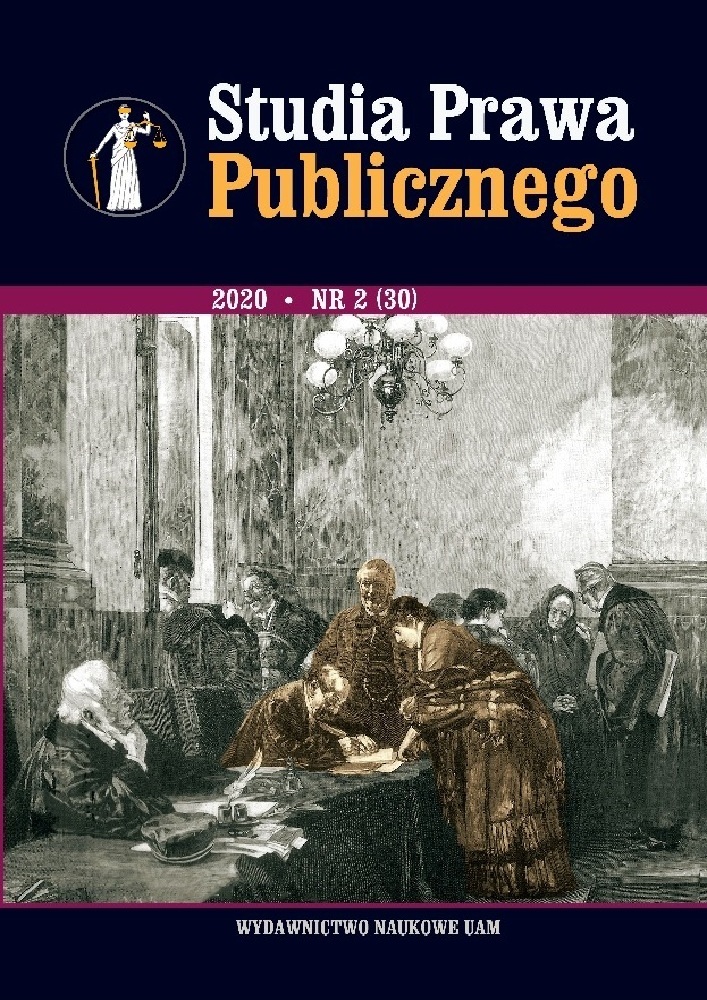Abstract
In all three Central European countries, long-term residence is defined as residence for a specific purpose of more than 90 days. The requirements for granting this type of residence are generally similar with differences in the individual types of purpose of this residence permit. The Polish Act contains a category that could be defined as ‘above-framework’, expanding the range of options that make it possible to obtain long-term residence. The Slovak legislation contains the purpose of “special activities”. In comparison with the Czech legislation, the range of possibilities for obtaining long-term residence in Slovakia is more extensive and less rigid. Specifically, in the case of long-term residence for the purpose of study, there is a fundamental difference in the legislation in the Czech Republic and Slovak Republic, where Slovak legislators include in the term “study” all university, secondary, and higher vocational education. The Polish Act mentions only university studies and doctoral studies. The administration related to the admission of a foreign student to a specific school in the territory is certainly more extensive and demanding in Poland, with both the minister and the voivode enter the process beyond the framework of standard state administration bodies. The arrangement of the Act reveals a fundamental difference in Poland, where the sequence and logic of the arrangement is different to the Czech or Slovak legislation, which is expressed in which institutions Poland focus greater attention and emphasis or importance. None of the countries completely leaves the issue of visas for aliens from third countries unregulated. Although the legislation is identical in many respects, there are differences between individual institutions and the periods for which a visa can be issued. However, the issue of alien law is, at first sight, very extensive and content-intensive in all the above Central European countries, as evidenced by the length of the legislation itself, the complexity of individual institutions, and specific complexity of the provisions.
Funding
residence permit
aliens
administrative law
References
Berthotyová E., Pobyt cudzincov: judikatúra, Bratislava 2017, ISBN 978-80-8168-729-7.
Bible: Holy Scriptures of the Old and New Testaments (including deuterocanonical books), Czech ecumenical translation (translated into English), 13th ed. (4th ed.). Originally translated into Czech by M. Bič, J.B. Souček, J. Mánek, Prague 2007, ISBN 978-80-85810-58-5.
Bobek M., Bříza P., Komárek J., Vnitro státní aplikace práva Evropské unie, Prague 2011, ISBN 978-80-7400-377-6.
Goodwin-Gill G.S., International Law and the Movement of Persons Between States, Oxford 1978, ISBN 978-0198253334.
Noll G., Negotiation Asylum. The EU Acquis, Extraterritorial Protection and the Common Marke of Deflection, The Hague–Boston–London 2000, ISBN 978-9041114310.
Ondruš R., Průvodce cizineckým řízením: se vzory procesních postupů správních úřadů a účastníků řízení podle stavu k 1.1.2005, Prague 2005, ISBN 80-7201-516-8.
Plender R., International Migration Law, Revised Second Edition, Dordrecht 1988, ISBN 978-9024736041.
Pořízek P., Vstup cizince na území státu: pohled mezinárodního, unijního a českého práva, Prague 2013, ISBN 978-80-7201-907-6.
Pořízek P., Základní teoretické přístupky k otázce přijímání cizinců na území státu, Ministry of the Interior: “Administrative Law” No. 8/2012, year XLV.
Savino M., The right to stay as a fundamental freedom? The demise of automatic expulsion in Europe, “Transnational Legal Theory” [online] 2016, no. 7(1), p. 70–94 (accessed: 1 IV 2020), DOI: 10.1080/20414005.2016.1171558.
Vláčil J., Právo na vstup a pobyt na území členských států Evropské unie, Prague 2016.
Prameny a nové proudy právní vědy, ISBN 978-80-87975-52-7.
License
Copyright (c) 2020 Markéta Bednářová, Eva Lásková

This work is licensed under a Creative Commons Attribution-NonCommercial-NoDerivatives 4.0 International License.
